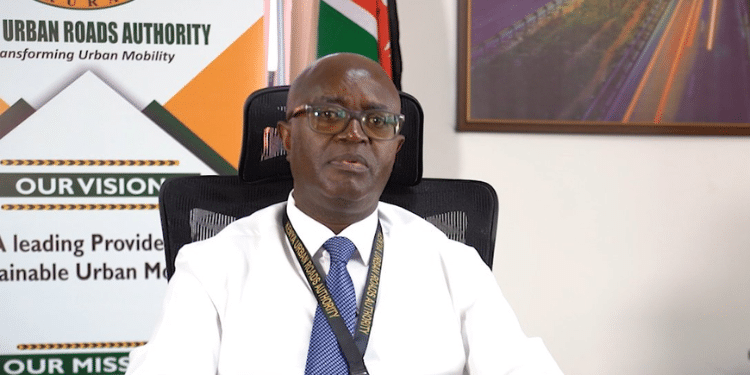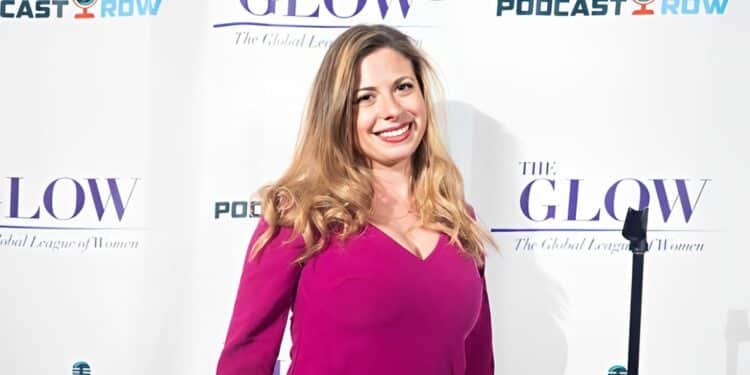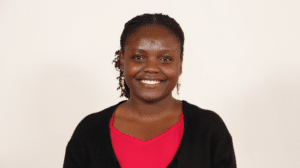Gender equality is no longer on the menu for the US government and its boss President Donald Trump.
Samantha Karlin, the founder and CEO of Empower Global, bared all in an exclusive interview with The Kenya Times Journalist Joy Kwama for this article. Karlin, a leading advocate for gender equality and women’s leadership did not hold back in her assessment of the current state of gender-focused programs under the U.S. government.
From the abrupt defunding of critical programs to the effect on corporate diversity initiatives, Karlin issues warnings about what she sees as a deliberate dismantling of hard-won progress in gender equality.
Here is a reproduction of her thoughts, still fresh and urgent in more ways than one.
Also Read: USAID Insiders Reveal Survival Tactics for Funded Companies After Trump’s Order
1. As a keynote speaker and expert on leadership and women’s rights, how do you see the current government’s funding withdrawal impacting women-focused programs and leadership development initiatives in the regions Empower Global serves?
Overall, the current administration’s executive orders on DEI, anti- DEI stance, and bizarre obsession with transgender people have also resulted in an attack on anything and anyone that includes the word “gender,” which also means gender equality.
This goes beyond USAID to every single government agency, where they have terminated any government employee and even government contracts and projects that even hint at DEI or gender equality. What is odd is that it wasn’t like this in the first Trump administration. There was an attempt to minimize or discontinue the use of gender under Trump, but women-focused programs continued.
For example, Wade Channell, former senior economic growth advisor for gender at USAID, pointed out, “During the prior Trump Administration, I served at USAID as the primary technical lead and drafter for the Women’s Global Development and Prosperity Initiative (W-GDP – https://lnkd.in/e6NkPqaK), led by Ivanka Trump. Ms. Trump sponsored work to promote formal employment, financial access, and regulatory support for women in the economy. In an interagency effort, USAID coordinated the various participants on behalf of the White House.
Congress supported the efforts through bi-partisan funding of $300,000,000 dollars during this period. Congress also passed a bi-partisan bill known as the Women’s Entrepreneurship and Empowerment Act of 2018 which mandated that USAID promote women’s economic empowerment and that all projects be informed by a gender analysis.”
This was a hugely successful program that economically empowered many women across the globe. It is odd that Ivanka has been absent while her father and Elon Musk annihilated USAID and her legacy under his previous administration.
I personally think it’s because this isn’t about USAID, this is an effort by Trump and Musk to consolidate power so that they can rule like autocrats without oversight, enriching themselves and their small circles of wealthy friends. USAID was just the first to go because of a personal vendetta Musk had against the agency for its role in ending apartheid (that’s my theory anyway).
As Wade remarked to me, “If you divide the world into givers versus takers, Trump is a taker, he’s not a giver.” It is remarkable he was elected to public office AGAIN because public service is supposed to be all about giving, taking is not in the job description.
And I say that as someone who taught leadership to hundreds of public servants.
In terms of the impact on women’s empowerment programs, it’s catastrophic and will continue to get worse.
The vast spread of programs that have been halted or cut is so many I can’t list them all here: cash transfers for the poorest households, financing for women farmers, access to reproductive healthcare, programs promoting and helping women entrepreneurs, services and safehouses for victims of gender-based violence and domestic violence, HIV treatment, women’s political participation programs, supporting women parliamentarians, etc.
For example, when I was serving at our embassy in Bosnia, one USAID grant we were in charge of disseminating was to help ameliorate massive rates of domestic violence in the region and assist victims of rape from the Bosnian war.
Another USAID project was bringing female government leaders across ethnic groups in the government, Bosnians, Serbs, and Croats, to advance women’s rights in the country. This served a dual purpose of promoting gender equality and mitigating future conflict between ethnic groups.
Sadly, gender equality is no longer on the menu for the US government, even though women’s participation in the economy is only a benefit for everyone, as it contributes to GDP growth.
One program that I know of vis a vis USAID staff that was cut was an African enterprise project in Rwanda that works to help small businesses survive and grow- 250 people were dismissed from the project, and in Rwanda, the majority of small businesses are women-owned.
Any local non-profits that receive substantial funding or partnership with the US government are now bereft and some are shuttering, their only option is volunteers, but that’s not a sustainable approach.

Also Read: 30 Kenyan Companies Risk Shutdown After Trump Withdrew Funding
What if Funding Was to Resume?
Even if funding was to resume, many organizations only have enough cash on hand to sustain themselves for 90 days, which means they can’t endure a 90-day pause in funding- and it looks like it is not going to come back for any organizations working on gender equality, reproductive health, women’s rights etc.
And even before this, less than 2% of charitable giving goes to organizations that specifically support women and girls.
For example, there was an email with a “canceling of canceled contracts” that came out Feb 18th. However, it still stipulated that any program or award with a relationship to DEI- which frequently includes gender equality, was still to be shelved.
One US international NGO is in the hole of 45 million dollars. Many NGOs like this one receive the grant from USAID and then disseminate the money via small grants to local NGOs on the ground globally. This means that there are no more pass-through grants to small organizations, projects are halted midway through, and staff are let go suddenly.
There will also be very few reproductive health organizations that get through this, because not only are they dealing with a dearth of funding, but they are also dealing with significant security risks.
The anti-abortion stance of the federal government along with the overturn of Roe v. Wade, and the pardoning of the January 6th insurrectionists have unleashed anti-abortion protestors in a way where they feel as if they will not be prosecuted or held accountable for mounting violence against not only reproductive health organizations, but those who fund reproductive health organizations.
For example, the health foundation in Missouri received death threats and was forced to evacuate when someone looked at their tax return and saw that they had given a grant to Planned Parenthood. A huge protest was mounted in front of their offices. I am afraid we are turning back to the days when abortion clinics were bombed and providers shot.
Already, many OBGYNs who work in abortion clinics in red states don’t live there, they fly in to provide care because they are worried for their safety. Small organizations that don’t have diversified funding, and even if they do, are majorly at risk, as they already often are barely keeping their head above water.
USAID is also UNICEF’s biggest donor, UNICEF does a ton of work supporting girls healthcare, education, humanitarian aid during wartime, etc. They will also suffer.
It’s also important to understand that leadership development programs and women-focused leadership and entrepreneurship programs are irrelevant if women don’t have access to healthcare, HIV treatment, housing, reproductive rights, disaster relief, freedom from violence, infrastructure, nutrition, and income. If their basic needs aren’t met, they are not going to be able to focus on leadership development.
2. Which of Empower Global’s programs, especially those centered on women’s economic inclusion, leadership, and education, are most affected by this decision? How are you working to bridge the funding gap?
Fortunately, we are not a grant recipient of USAID, however, we are a service provider of leadership training to the US government.
The government is allowed to still provide leadership training, but nothing that focuses on one particular group.
Because of the administration’s executive order around DEI, as well as the court case from the Supreme Court last year that ended affirmative action at universities. I have spoken to many companies and organizations who are worried about being sued if they provide training only for one group of people, even if that group of people is women, who are half the population.
This is a shame because in many organizations, even when the company might look like it’s 50 percent women, women tend to be concentrated in entry-level and beginning manager roles, the top of the organization is almost always male-heavy, and the board is often devoid of any women at all.
This is called “the broken rung” theory. “For every 100 men promoted and hired to manager, only 72 women are promoted and hired. This broken rung results in more women getting stuck at the entry-level and fewer women becoming managers. Not surprisingly, men end up holding 62% of manager-level positions, while women hold just 38%.” https://leanin.org/women-in-the-workplace/2019/glass-ceiling-and-the-broken-rung

Programs like the Women’s Leadership Accelerators that we run for companies, which focus on gender-specific issues and help women to rise in male-dominated environments, are critical to helping women break through to senior leadership, and give them the support they need so that the journey to the top is bearable. These women often feel very alone, and without that type of support and training, they quit.
Yet many companies have deleted DEI from their websites or cut their DEI targets entirely. I was very much surprised that Accenture cut their DEI targets, and a big focus for them was advancing women. Others have proudly stood up – i.e. Ben and Jerry’s and Costco, but there are a lot of providers of DEI training who are now out of business because so many companies retracted their policies and entire departments of DEI staff.
Fortunately, we don’t only teach programs for women, we teach highly successful leadership accelerators for everyone. Thus, we have shifted focus to leadership development consulting and designing customized leadership accelerators for all genders. We also designed a cross-cultural course that helps teams work more effectively across nations and borders.
I also would like to support more nonprofit leaders who are affected by this as well as to support US government employees who have been furloughed with tuition scholarships for the Women’s Leadership Challenge, a yearlong transformational leadership program that is conducted live in small cohorts, as it will provide critical support and community for them at an extremely difficult moment in their lives, and turn anger into action.
Anyone can click here to pledge their support:
https://live.givebutter.com/c/3pwC3Z
or if interested in a formal sponsorship package of 5K+, please contact us at [email protected].
3. Have you had to scale down operations, cut staff, or pause critical projects? If so, could you share numbers or highlight regions where the impact is most severe?
Contracts that I was expecting to come through from government agencies have been retracted or paused. Some have lost funding, some expect that they will also lose funding and are scared to spend money, and some have no bandwidth to spend money on “extras” like training since they are firing thousands of employees.
Some of the people I was liaising with within the agencies about upcoming training we were supposed to give have simply disappeared, likely unjustly fired in the Trump/Musk illegal rampage of vengeance terminations.
I have two staff that rely on Empower Global for income whom I am keeping on currently with savings, corporate clients, and our B2C program. Otherwise, I have a large network of facilitators, coaches, and contractors who are not full-time employees – but I am still passionate about helping talented people to make an income and have a supportive environment in which to work.
In a Harris administration, Empower Global would have flourished and I would have been able to provide work to a lot of great people. In this administration, things have gone starkly in the opposite direction. Many downstream opportunities have just dried up overnight.
Many companies have also stopped celebrating Women’s History Month, and I normally do many speaking engagements for Women’s History Month, so there have been fewer requests this year as well. This all being said, this is nothing compared to the heartbreaking and illegal termination of thousands of federal employees and the thousands of people being terminated because of US government contracts being cut off.
In addition, many of the participants in the Women’s Leadership Challenge are executive directors of nonprofits – and many have seen their contracts paused, cut, or withdrawn, leaving them on the precipice, not knowing if they will make it another 6 months or if they will have to close their doors.
4. Given your background in foreign affairs, do you see public-private partnerships playing a stronger role in sustaining global development efforts in the wake of shifting U.S. foreign aid policies?
We have seen many private firms place importance and focus on women’s rights, in particular, women’s economic empowerment. Some of those include VISA, Mastercard, and Goldman Sachs.
Anyone who is not being funded vis a vis the government has the right to do whatever it is they want to do, and many have corporate social responsibility approaches that focus on women.
However, some are worried about being sued, as conservative activists have mounted lawsuits against multiple companies and nonprofits for allegedly discriminating against them vis a vis their DEI programs.
At least 37 federal lawsuits targeting DEI programming were filed in 2024, against companies like Target, Lululemon, and IBM, as well as against small organizations that help women entrepreneurs with resources and small grants. Both Hello Alice and Ifund Women had to let go of almost all their staff when they were sued for having grants that were specifically for black women entrepreneurs.
Through corporate social responsibility, I’m hopeful that some of them will increase their commitments globally, but it is unclear what their impact will be in other countries. Costco is significant because it has a massive global supply chain. However, companies tend to invest philanthropic resources where they have economic resources.
If they have a factory in Nairobi, they will invest dollars there but they won’t invest in a country where they don’t have factories or resources. It is like this for a lot of companies.
Wade Channell, former senior economic growth advisor for gender at USAID remarked, “My experience when working with larger organizations on public-private partnerships for development, which typically engages in women’s economic development, entrepreneurship and business-related programs, is that the larger corporations wanted to invest in Kenya (strongest east African economy), South Africa (oldest wealthiest economy), Senegal, Nigeria (largest population), and Ghana because that’s where the markets are and major trade is.
Maybe there is an opportunity for these corporations to do more. But the smaller countries will be left out and there are many other services that are needed other than business programs. For example, programs that support the rule of law, anti-corruption, court reform, governance, independent reporting and investigative journalism will not be funded.
As an example, Mars bars are not going to fund court reform because they’re not going to go outside of their value chain. And companies don’t want to be exposed by investigative journalists, thus the private sector won’t give them backing. The US government was able to provide backing and or pressure to fund or allow investigative journalism because they often exposed corruption and unsavoury practices in the government and in the private sector. The private sector won’t get behind this.
One place where there might be opportunities is in education and in partnership with US universities, but because US universities receive government funding, they are unlikely to do anything that smacks of DEI. There is a chilling effect on any entity that is receiving funds from the US government.”

U.S President Donald Trump after signing several Executive Orders of January 20, 2025. PHOTO/White House.
5. How is this funding cut affecting partnerships with governments, local NGOs, and private sector stakeholders? Are you in discussions with alternative donors, such as the EU, UN, and corporate funders, to fill the gap?
The federal government is cutting not only employees but also contracts for professional services and programs for federal employees, such as leadership training.
As a certified woman-owned small business, Empower Global bids for government contracts, and also acts as a subcontractor to prime contractors. With all the funding cuts, many of these contracts are either being withdrawn, are in limbo, or the people who were supposed to supposed to liason with contractors have been fired, and thus there is no one to supervise the contract disbursement.
To say that it’s a dumpster fire would be putting it mildly. It’s a forest fire of epic proportions.
For individual women leaders who normally enrol in The Women’s Leadership Challenge, many have lost professional development funding that normally would be provided to them by their agency to grow their leadership skills, and many have lost their income entirely.
Thousands of federal employees have been furloughed for no reason, with claims that firings are performance-based – which is completely untrue. Even those who haven’t been fired yet are terrified that any minute, their “fork in the road” email will come.
This is causing women to panic about spending money on the course or preventing them from signing up in the first place, which is a shame because this critical transition in their lives and a time of massive societal upheaval is the exact moment when women leaders need a program like the Women’s Leadership Challenge the most.
Furthermore, US inflation rose by 3% and Trump’s tariff announcements have thrown the private sector into a fearful state because all economic forecasts show that tariffs will hurt the US economy, not help it. Actions like depleting the NIH, stopping USAID funding, appointing an anti-vaxxer as the secretary of health and human services who thinks that HIV doesn’t cause AIDS, and who wants to PAUSE infectious disease research for 8 years, I could go on and on, increases the likelihood that we enter into another global pandemic and economic recession.
Many people voted for Trump because they wanted lower prices on groceries, gas, and famously, eggs, and those prices haven’t gone down at all. There is literally nothing good that President Trump and his accomplice Musk have done that has helped anyone but themselves and their entourage in the first month of his presidency.
It’s just been utter destruction, to a level we have never seen before in the US. It’s sickening. The cabinet appointees, the president, and his henchmen have no concept of what it means to be public servants, and furthermore, have punched in the face of loyal public servants who have spent their lives helping people, dismissing them like they are dirt. They are even screwing over Kansas farmers, who are projected to lose over $10 billion in revenue if the Food for Peace program remains defunct for the next decade, which was part of USAID.
Everyone is operating from a lens of fear right now, and just like a snail, when encountering fear, there is retraction, not spending.
6. As someone who has worked across both public and private sectors, do you see this withdrawal as part of a larger shift in U.S. foreign aid priorities, or do you think USAID funding for organizations like Empower Global could be reinstated?
This is a dramatic shift because even under Republicans in the past, we have never seen anything like this, not only USAID funding being frozen but the entire agency being dissolved and attacked, called a criminal entity that needs to be “fed to the woodchipper.”
Under George Bush, for example, there was a huge investment in countering HIV/Aids in Africa, which was wildly successful and saved countless lives. Foreign aid has never been so politicized, because it’s a no-brainer- it makes up a smidge of our federal budget, and the return on investment is huge.
It builds alliances and goodwill around the world, spreads American influence, counters Russian and Chinese influence, counters terrorist recruitment, prevents pandemics and the spread of HIV aids, and prevents the outbreak of violence and resurgence of war. It gives us eyes and ears on the ground all over the world. It is a linchpin of our national security apparatus. It offers opportunities to work together with our allies. It creates more secure states. It helps ameliorate climate change.
Foreign aid is a linchpin of what keeps the US as a world leader.
Will funding be reinstated? There are reports that some funds have been reinstated, but other reports say that they are still frozen. I don’t think massive funds will be reinstated unless the House and the Senate flip back to the Democrats in 2026.
However, considering how much utter destruction has happened in one month, I am terrified to see the state of things in 2026. Will we even have elections? It’s that bad. Furthermore, even if reinstated, a lot of talent isn’t going to want to go back to the US government because they are furious at how they have been treated. The trust has been broken in the worst of ways.
7. From your perspective, how does this decision reshape U.S. engagement with Africa and other developing regions? Do you anticipate a shift in geopolitical influence, particularly with players like China and the EU stepping in?
Clearly, this will leave a gap that is filled by China. We have already seen China stepping in with a 4.4 million dollar grant to support UNICEF’s demining operations in Cambodia. A Kremlin propagandist advised Russia to exploit the USAID funding gap and develop similar mechanisms to build and project geopolitical power overseas.
We would hope our traditional development colleagues will fill the funding gap, in England, Sweden, and OECD countries that are not terribly dissimilar to the US. Norway has already stepped up with a pledge of 855 million dollars to humanitarian aid organizations over the next 5 years in response to USAID’s funding pause.
We are hopeful that this Western bloc will see this as an opportunity to increase their development impact, but the amount they commit depends on their economies and also is contrary to a surge in populist governments that tend to blame immigrants and have an inward orientation.
This all being said, the United States has always given more than any other country in the world to foreign countries in distress than any other countries in the world, because it is fundamentally part of our values. Unfortunately, we have at our helm an administration that has no values, that is asking what’s in it for me.
There is a gaping void of empathy, which is the most needed leadership quality at this point in time. This is a sad day for America, and our retreat from the world stage, and from serving our own people, will foster disasters that are far away from our borders.
8. Do you see this moment as an opportunity for greater self-sufficiency in African nations, or does it risk creating deeper reliance on alternative donors?
That opportunity should always be taken advantage of, that’s the goal. The question is if there is a vacuum who is going to fill it?
There could be greater reliance on other donors like China. It is important to remember that all donors have some self-interest.
9. Beyond funding, what are some innovative leadership and policy strategies that NGOs and governments should adopt to sustain women’s empowerment, education, and economic inclusion efforts?
Feminist foreign policy. Integrating gender analyses into everything they do.
Funding small grassroots women’s organizations. Supporting and funding feminist creators, substackers, podcasters, filmmakers, artists, and investigative journalists. These creators are often woefully underfunded and barely have money to produce the content, let alone to market it.
If we could get some money behind independent creators maybe we would have a shot against the Joe Rogans. Fund long-term organizing training and capability building.
10. What lessons should African nations, development leaders, and policymakers take from this shift in global funding trends?
Don’t rely on the US.
Follow our WhatsApp Channel and join our WhatsApp Group for real-time news updates.










































































